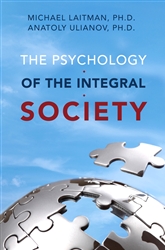
Dr. Anatoly Ulianov: When we talk about perception of reality, I don’t really understand what you mean and there are many questions left.
Dr. Michael Laitman: Give me a summary of what you know about the perception of reality from the standpoint of psychology, and I will tell you what I know from the standpoint of my profession.
Dr. Ulianov: This is an entire field in general psychology and over the last century, great discoveries have been made in it, especially during combat in the Second World War and its aftermath. As strange as it may seem, this was precisely the time when great discoveries such as Kurt Lewin’s theory were made. Lewin’s theory is about the psychological force field. Lewin was no less of a genius than Freud, but most people ignore his theory and continue to live as they always have.
The discovery he made is that a person’s perception is determined by his necessity, that it is not closed off within the person, but that perception is a system that consists of both a person and the environment. Accordingly, the necessity of the pressure is formed precisely in an environment, which changes a person’s perception of the external world.
We‘ve said that when children unite in a group the right way, something emerges that enables a child to perceive fundamentally new information, which he could never discover on his own. What is that information, what is so special about this force field, and how does this mechanism work?
Dr. Laitman: Are you talking about the possibility of integral perception of information?
Dr. Ulianov: Yes.
A Person and the Environment
Dr. Laitman: In fact, there is individual and integral perception. Individual perception is also integral, but unconsciously. There is also integral information that is perceived consciously, which enables one to attune and expand the boundaries of perception. As a perceiving object, I can attune and form myself under the influence of a surrounding environment that I chose in advance, by encountering and coming in contact with it, thus entering an integral connection with it.
This happens in life as well. If I want to be a computer programmer, I have to go to a programming workshop that is staffed by good programmers. I have to listen to them praising their mastery, caring for it, and admiring good workmanship. That way they will evoke my desire or aspiration to this profession. Then I will be able to expand the boundaries of my perception, I will acquire specific sensations and a sensitivity for things that I completely didn’t feel before.
Everything depends on the environment. If you leave a baby in the forest, it will grow up an animal. Depending on the environment you place it in, that is what it will become. This points to the fact that a person can be formed and regulated.
It’s not that he will become different. We have already noticed a while ago that we are a product of the environment. But how to change ourselves under the influence of the environment is, of course, a very interesting question. We look ahead, research it, and form groups of children to elucidate it.
We are looking for possibilities to unite children by shared qualities, specific abilities, or a natural inclination toward something specific. Or vice versa, we can create groups out of completely opposite individuals who will unite with each other to create a diverse collective. The research can be very interesting.
The above points were taken from the book The Psychology of the Integral Society by Dr. Michael Laitman and Dr. Anatoly Ulianov. Also available as eBook (PDF, Kindle & ePub formats).


